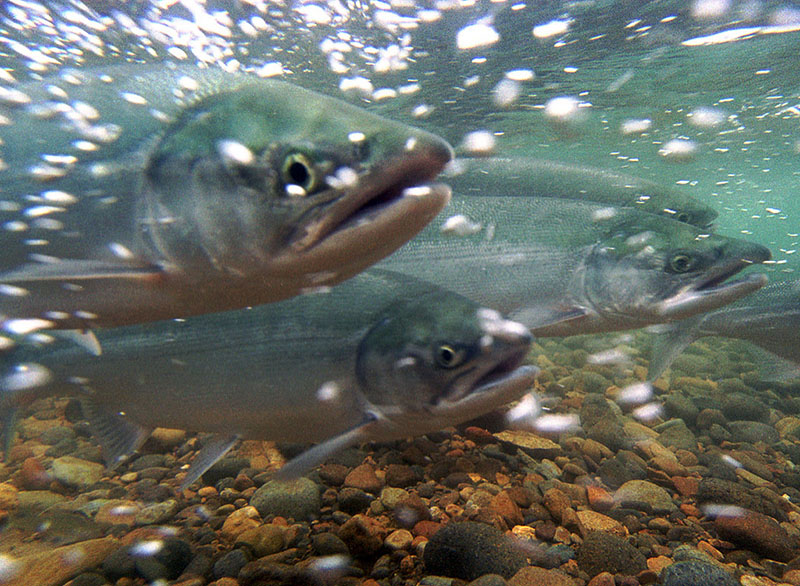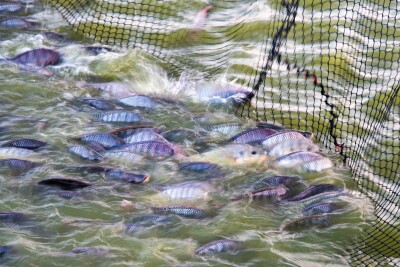New research shows ocean acidification could affect salmon’s ability to smell, which the fish rely on to avoid predators and return to their natal rivers. Researchers from the University of Washington and NOAA are investigating the potential effects of acidification on the nation’s wild salmon runs.
This could be an even bigger problem in salmon-rich Alaska, where naturally high levels of carbon dioxide give acidification a running start, according to NOAA scientist Jessica Cross, who spoke at a panel discussion on Nov. 17 at Pacific Marine Expo in Seattle.
“Alaskan waters are already naturally very high in carbon dioxide concentrations,” said Cross, who is in charge of the monitoring ocean chemistry and tracking acidification in Alaskan waters for NOAA. “So when you take that naturally high carbon dioxide and add just a very little bit of this human caused carbon dioxide on top of it, you end up creating these ocean acidification events where we change the ocean chemistry such that it is suddenly corrosive to carbonate minerals.”
Cross said acidification is responsible for dwindling food sources along with reduced growth, increased mortality and less frequent molting in susceptible fish and shellfish. On top of all this, acidification “sort of messes with the brains” of fish like salmon.
Chase Williams, a postdoctoral researcher at the University of Washington who specializes in measuring the effects of elevated carbon monoxide on salmon behavior, reported on research out of Australia that has found that reef fish exposed to high levels of carbon dioxide exhibited significant changes in behavior.
“Normal fish would smell a predator or an unhealthy environment and swim away, but after they were exposed to this elevated carbon dioxide, they had the opposite response,” said Williams, who set out to find out if salmon were similarly affected.
He exposed juvenile salmon in tanks to three different levels of elevated carbon dioxide and injected the tanks with an alarm odorant, in this case ground salmon skin, that would cause a healthy salmon in the wild to either swim away or freeze up.
“Unfortunately, we found that under normal conditions, control fish generally avoided the alarm odorant,” Williams said. “However, as you increase the level of carbon dioxide, they’re basically indifferent to this alarm smell.”
By tracking neural activity in both the nose and brain, Williams was able to deduce that the fish are still smelling the alarm odorant, but their brains are not able to process it properly. Whether or not this could prevent salmon from sniffing out their natal rivers will require more research, Williams said.
“I haven’t tested that directly, so I can’t say for sure. But it is the same sensory system, the sense of smell, that was impacted in this test. So I think there’s enough grounds to worry that potentially it could effect adults migrating back to natal rivers,” Williams said.
United Fishermen of Alaska hosted the panel on ocean acidification after UFA surveys found that it was among the top concerns for Alaska fishermen.







